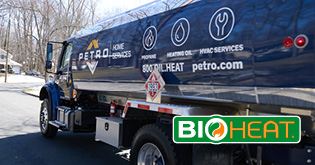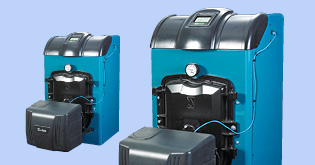- My Account:
- Sign In
- Register
- Make Payment

Boiler vs. Furnace: What's the difference?
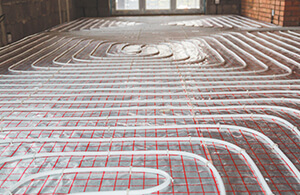
Choosing the right method for heating your home is important. There are a variety of factors that go into the process, including energy efficiency, the size of your residence, the climate you live in, repair costs, and much more. When comparing boiler vs. furnace heating methods, it is important to look at how each system works to determine the best system for your needs.
At Petro Home Services we are dedicated to helping educate consumers while making this vital decision. That’s why we’ve put together this short home heating guide to assist in your fact-finding process.
The difference between boiler vs. furnace heat.
There’s a substantial difference between boiler heat vs. furnace heating. To put it in simple terms, a boiler uses hot water or steam from hot water to heat your home and a furnace uses warm air. But the contrast goes a little bit farther than just that. The way each system operates to provide climate control during sub-zero temperatures is quite different, and it’s important to look at other factors like repair cost and initial installation to determine which one is best for your home.
How do boilers and furnaces heat homes?
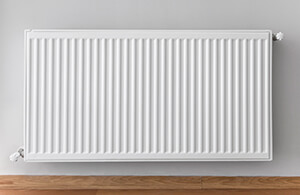
Another important factor to consider in the boiler vs. heater debate is how each type of unit works. A furnace system runs on oil, natural gas, propane, or electricity. It heats up air and pushes it through the ductwork of your home using a blower. This creates a high level of ambient temperature in the home, but the air is sometimes less comfortable due to dryness.
Boiler systems run via natural gas, oil, electricity, or even wood pellets. They heat up water to very hot conditions and use a special pump to heat radiant flooring systems, cast iron radiators, or baseboard radiators throughout your home. Due to the lack of a blower, radiantly heated air is often the most comfortable option for use inside your home.
Both boiler systems and furnaces are used in conjunction with air conditioning systems to cool your home in the summer, but certain homes might require additional ductwork or an alternative type of ductless system for this to be possible.
Maintenance requirements.
For obvious reasons, the maintenance requirements for a boiler system is also much different than a furnace. Boiler units require little to no maintenance other than an annual service tune-up done by a professional. On the other hand, furnaces require not only an annual inspection but also the need to change your air filters monthly or quarterly. (If you live in a dusty area or have pets, you’ll want to change them more often, which can easily add up the cost.)
When it comes to natural gas furnace vs. a natural gas boiler, there are also a few maintenance differences than their standard counterparts. To reduce the risk of carbon monoxide poisoning or natural gas leaks, it is vital to have both types of these systems checked once a year by a professional service company.
Boiler vs. furnace pros vs. cons.
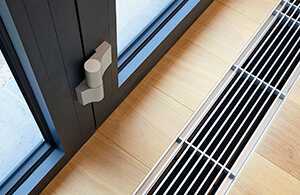
There is also a great deal of difference between the pros and cons of a boiler vs. a heater. Furnaces often cost less and take far less time to install than boiler systems. And, since furnaces don’t utilize water in the heating process, there’s less chance of freezing during a wintertime power outage. But the use of ductwork can create a drafty environment, and the spread of dust and dander is worse for families with allergies. Natural gas furnaces also run the risk of valve leaks, which can cause serious health issues.
In contrast, the radiant heat from a boiler system is much more comfortable than forced air from a furnace. These units are also less noisy, more energy efficient, and create better air quality inside your home. No ductwork is required. In certain cases, the heated water from the system may also be used for things like laundry, showers, or your dishwasher. The downside to these systems is that they can be more expensive on initial installation, and if there is ever a leak the damage to your home could be quite extensive.
Energy efficiency of boilers vs. furnaces.*
When comparing the energy efficiency of boilers and furnaces, it's important to consider the Annual Fuel Utilization Efficiency (AFUE) ratings. High-efficiency furnace models must have AFUE ratings of 85% or higher.
For boilers, the AFUE ratings depend on the type of boiler and its heating source. For instance, steam boilers running on oil have a minimum AFUE of 82%, while those running on gas have a minimum of 80%. Hot water boilers have a minimum of 82% for gas models and 84% for models that run on oil.
In terms of energy efficiency, boilers are generally more energy-efficient than furnaces. This is because heating air, as furnaces do, requires more energy than heating water, which is what boilers do. Some of the hot air generated by the furnace can escape through the duct system, reducing its efficiency
When it comes to costs, boilers are typically more expensive to install but run more efficiently, potentially leading to cost savings in the long run.
As for lifespan, the average lifespan of many boilers is around 15 years. However, with proper installation and maintenance, a conventional cast iron water boiler can last 20 years. On the other hand, a well-maintained furnace can last at least 15 to 20 years.
In conclusion, while boilers tend to be more energy-efficient and have a longer lifespan, they are also more expensive initially. Furnaces, while less energy-efficient, are cheaper to install. Therefore, the choice between a boiler and a furnace will depend on your specific needs, budget, and the specific models you are considering.
Check out our video to learn when you should repair or replace your furnace.
Again, choosing the right heating system for your home requires a bit of research and understanding of each system in comparison to your needs. In most cases, a boiler system is a better alternative, but there are both pros and cons of both types of units.
Contact Petro Home Services for help with installation or repairs on your boiler or furnace home heating system.
Learn More About the Heating Systems Available for Service & Installation from Petro

Petro Home Services is proud to not only serve communities in DC, CT, MA, MD, NJ, NY, PA, and RI but we also proudly acknowledge the skills and experience of our expert team behind all resources. With insights on topics ranging from heating oil facts to common air conditioning questions, you can rely on Petro Home Services for facts and information to help you understand more about your heating, cooling and home comfort needs. This article and all articles on the Petro Home Services website have been approved by our team of home service experts.

